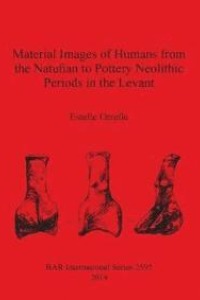
Liknande böcker
Romanization in Palestine : A study of urban development from Herod the Great to AD 70
Bok av Reuben Yat Tin Lee
This monograph presents a reassessment of the meanings and characteristics of Romanization. The research aims at challenging the predominant views on ethnic changes and Roman cultural dominations; exploring the Jewish perspectives on landscape as a means for criticizing the cultural and ethnic Romanization Approaches; and investigating the political consequences of the Herodian building program and consequent relationship with the imperial government. 'Romanization' originally meant 'to become Roman'. Studies of Romanization in provinces other than Palestine rely heavily on changes in material culture as the indicators of transformation of cultural and ethnic identities from 'natives' to 'Romans'. Supported by numerous literary records, such phenomena did not occur in Palestine. Under Roman rule, the Jews were never assimilated to become Roman. Jews also did not show any desire to be self-Romanized. Moreover, no evidence suggests any intention of ethnic and cultural assimilation from the imperial government or the client kings. It has always been assumed that the imposition of 'Roman architecture' was a strong indicator of cultural and ethnic Romanization. However, the term 'Roman architecture' is uncritically used in architectural studies. Herodian buildings should not be simply classified as 'Roman architecture'. The Herodian builders made use of local, Near Eastern, Eastern Mediterranean and Italian architectural elements and subsequently created hybrid architectural forms. Some Herodian structures were similar to those in Italy, but their perceived meanings in Palestine might not have been the same as in Italy, because the Jewish population in Palestine viewed them in terms of their local culture. It has been assumed that Palestinian Jews were so distinctive that they were immune from ethnic and cultural Romanization. But the phenomenon in Palestine might not have been a distinctive one; without the help of surviving literature, Palestine would be interpreted in a similar way to other Roman provinces. Therefore, 'peoples' in other provinces might not have 'become Roman' ethnically and culturally.







